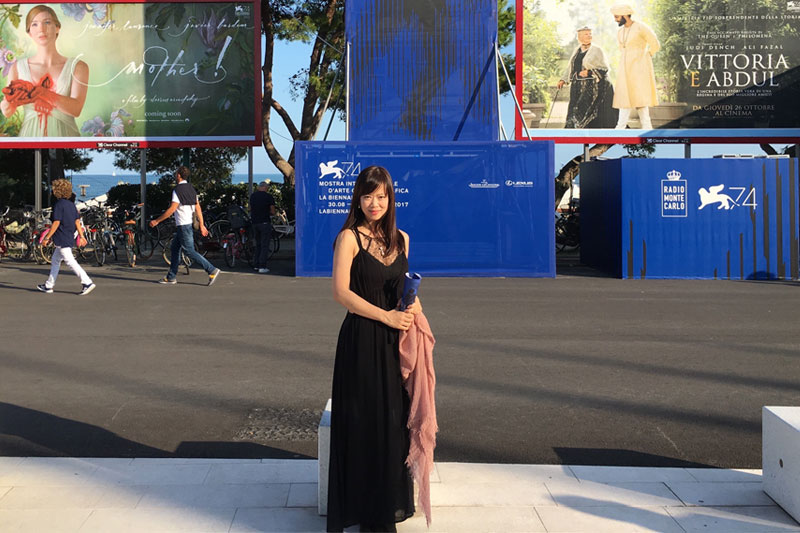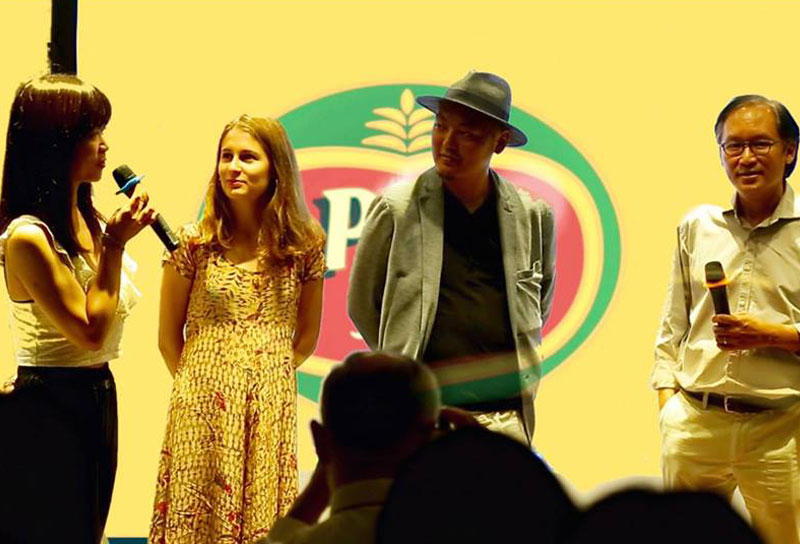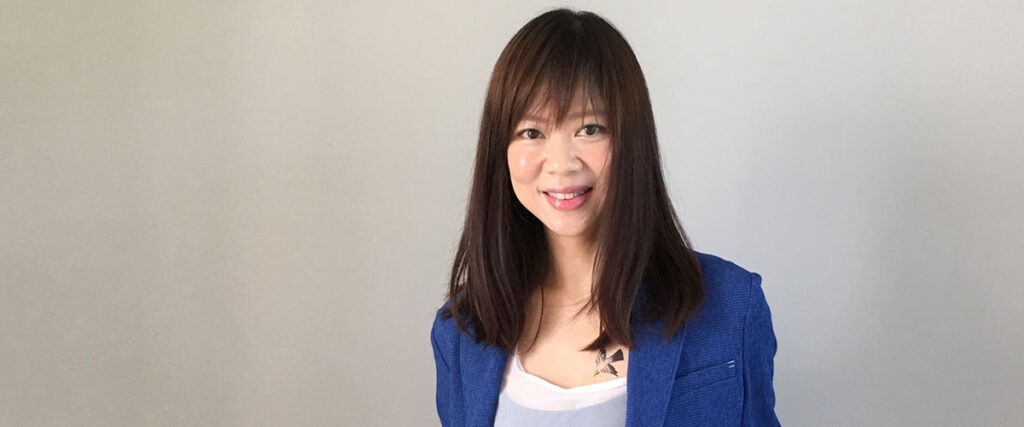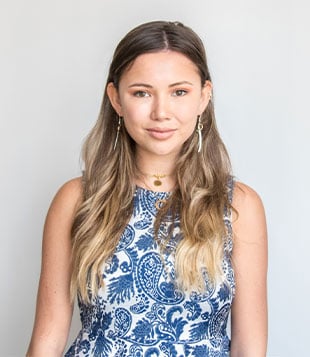Experimental filmmaker and producer Gina See-Yuen Wong lays the foundations for women from all backgrounds to succeed in the male-dominated world of film.
At the Oscars this year, Frances McDormand had two words for us: “inclusion rider”. For those that don’t know (i.e. the great majority), an inclusion rider is a clause in contracts demanding projects to have diverse casts and crews. As an advocator of female-driven movies, these two words uttered many thousands of miles away must have struck a chord with Gina See-Yuen Wong, a local filmmaker, producer and curator that has devoted her life to diversifying the male-dominated world of film.

In 2011, having recognised that the film industry was considerably lacking in substantial female roles, particularly with regards to those behind the camera, the experimental producer took it upon herself to establish PUFF (Pineapple Underground Film Festival). An indie film festival determined to showcase films created by women and different minority groups from around the world, she launched it with an eye on showcasing films starring unconventional and frequently marginalized leads. Since then the festival has transformed into a prominent gathering of talented filmmakers, with films being shown at over 40 festivals around the world. On top of this, Gina also runs Experimenta, an art space focusing on multimedia projects, screenings, and digital media.

We took the opportunity to sit down with the veteran filmmaker to learn more about her thoughts on the film industry both locally and abroad.
What was the reason for establishing PUFF and Experimenta?
Film festivals, especially the ones in Asia, are mostly founded by men. I wanted to show films that were made by minority groups, films that are not often chosen by the main film festivals. This is because minority groups, like female directors, usually find it harder to raise money. A big thing with PUFF is that, as long as you are willing to take risks in terms of your storytelling, in where you choose to base your story and with who your protagonist is, it doesn’t really matter if your film is “perfect” or not.
How has your upbringing shaped the way you view film?
When I was studying at an English boarding school in the 1990s, I happened to live quite close to the Tate Britain Museum in London. It was then that I first came into contact with the work of contemporary video artist Bill Viola, and I remember thinking, ‘I didn’t know that moving image could be like that’. It was my first ever encounter with video art.
Can you tell us about your motives behind recent projects?
My personal goal has always been to be part of any filmmaking project initiated by women from any and all walks of life. My last project was called Papagajka and it was a 93 minute feature film. I collaborated with Emma Rozanski, a Serbian filmmaker and this was her very first film, so she needed all the help that she could get. We actually had a premiere at South by Southwest film festival in 2016, which was quite a surprise.
What has been your favourite project to date?
I’d have to pick my own short film called The Road to Day Dream Mine. It was shot in 2015 in the middle of the Australian Broken Hill desert with a drone. When I arrived at location, I immediately realised that I should have brought along 3 extra drones because the desert was huge and there was a risk that it could have been damaged. It was extremely stressful, but also lots of fun. I’ll never forget walking into this random little bar in the middle of the outback with my crew, and watching as everyone stopped their conversations to stare at us. They just couldn’t believe that so many asians were in the middle of their desert! (Laughs)
What are your current thoughts on the film industry?</h4?
At the end of the day, most films tend to be about human endeavours and how certain individuals go against the grain, fight with the gods, achieve greatness and, of course, get the girl. Most of the main characters are men, or are crafted by men, and the best lines are nearly always said by male characters. But as a female filmmaker, I’m trying to change that narrative.
Today we’re lucky in that there are more distribution channels than ever before, opening doors for female roles both on screen and behind the scenes. But there still is a way to go. Even in almost 90 years of Oscars history, only 5 female filmmakers have ever been nominated, and only 1 has won. But I’m not just talking about changing the narrative for women, I’m talking about all minority groups. This is only the beginning.
What are your views on the creative scene in Hong Kong?
The creative scene in Hong Kong is still a relatively new thing. It wasn’t until the last 20 years that it had become more open to the general public. One of the main things that young people here don’t seem to realize is the potential to expand into China. We’ve got a background of amazing talent, but it’s harder here – we don’t have the space. Regardless of whatever discipline they are in, people should really start thinking about Mainland China as an opportunity for them to do their creative or entrepreneurial work.
Was there ever a moment in your career that made you think about giving up?
There was a screening in London I did with artist, musician, filmmaker, Rachel Mason in 2015. It was a big event at The View in Piccadilly. But in the theatre, we only had 20 people turn up. I remember turning around and seeing Rachel start to cry. It was then that I thought ‘maybe there’s no market in this’ and ‘maybe women can’t be filmmakers’. It was a particularly hard moment for both of us. But after that, we had an amazing run of screenings in the US that were hugely successful.
What do you do when you’re stuck for inspiration?
If I can’t think of anything then I’ll go to the beach or do some shopping and forget about it all. My problem is that I need to think about all the things that go alongside my ideas. Do I have funding? Is it worth executing? Who will I work with?
Do you have any advice for aspiring young filmmakers?
Young filmmakers should start studying literature in their free time. This is because the base of any film actually comes from literature. This is way more important than knowing how to use the latest film-editing software or how to work the best lighting. You need to have a solid foundation in literature, language and poetry. No one can provide this sort of skill on your behalf.
Can you recommend to us 3 films that you think young filmmakers should watch?
Inception by Christopher Nolan, The Godfather by Francis Ford Coppola, and Orlando by Sally Potter.





